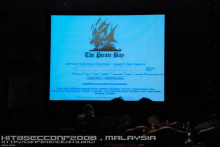U.S. indicts Brit Ryan Cleary for Fox, PBS hacks
The British man that allegedly hacked into the Fox reality TV show "The X-Factor" and the "PBS News Hour," along with music companies and government security agencies, was indicted by a U.S. federal grand jury on conspiracy and hacking charges today, according to the Associated Press.













































































